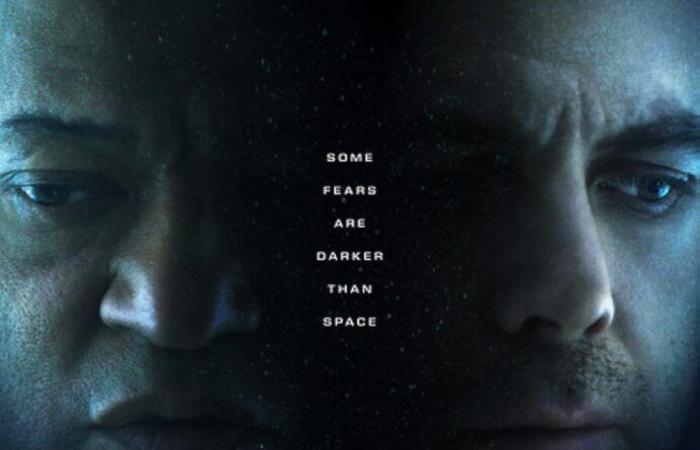Slingshot // De Mikael Håfström. Avec Casey Affleck, Laurence Fishburne et Emily Beecham.
Science fiction cinema has often offered us captivating space adventures, with gripping intrigues and scientific discoveries. Unfortunately, Slingshotalthough it aims to explore the psychology of astronauts on missions, largely misses the target. By wanting to focus on the inner drama of the characters, the film ends up disappointing both science fiction fans and fans of psychological stories. Here is an overview of the reasons why this film struggles to convince. Recent years have seen a growing number of films that feature astronauts on deep space missions, but which focus primarily on their mental states. This trend has made it possible to explore deep human topics in isolated contexts, but Slingshot fails in this process.
An astronaut struggles to stay in touch with reality during a dangerous mission to Saturn’s moon Titan.
The film is marketed as a space adventure, but in reality, it is mainly about looking at the emotional woes of one of the main characters, John (played by Casey Affleck), an astronaut disturbed by memories of his life passed. This excessive focus on personal drama seems incongruous, because it is hard to imagine an astronaut – a professional supposedly rigorously trained and psychologically prepared – spending his time rehashing sentimental stories. Slingshot thus falls into the trap of clichés: incessant flashbacks, gloomy self-talk, and a plot that quickly unravels to go in circles. The major problem is that this psychological drama could take place in any isolated place, and not in space, without losing any of its essence. In short, the film seems to have chosen space as a simple backdrop, without drawing any relevant substance or exploration from it.
The most frustrating with Slingshot, it is the lack of scientific credibility. The film takes place in a space context, but the scientific elements are few and often poorly treated. For example, from the first minutes, we hear the captain using inappropriate terms to describe the ship, speaking of a “plane” instead of a spaceship. The technical explanations lack coherence and depth, which makes it difficult to immerse yourself in the world of the film. The mission itself seems barely thought out: the characters are supposed to go to Titan to extract methane and thus help solve the climate crisis on Earth. This idea, while potentially interesting, is presented in such a simplistic way that it seems completely implausible. It’s as if the script was written without any real scientific consultation, thus giving the impression that the astronauts are more caricatures than competent professionals.
In comparison, works like Alone on Mars by Ridley Scott show characters whose skills and technical knowledge make every action believable and captivating. With Slingshotthe viewer is confronted with a scenario that progresses laboriously, punctuated by repetitive scenes and artificial dramatic tension. Most of the interactions between the characters seem forced and often devoid of any real stakes. The three crew members, supposedly highly trained experts, spend their time bickering and plotting against each other. This dynamic only accentuates the incoherence of the story: it is difficult to imagine astronauts, selected among the best, acting in such an immature and irrational manner. The captain of the ship, played by Laurence Fishburne, is one of the few positive points of the film. His acting is solid, but even his talents aren’t enough to make up for the weak plot.
As for Casey Affleck, his character is mostly irritating: constantly groggy due to supposed side effects of hibernation, he spends the film wandering and mumbling, making his character difficult to appreciate and understand. It is obvious that the scenario of Slingshot lack of depth. With a running time of around 100 minutes, it feels like there isn’t enough content to fill the allotted time. The basic premise – three people attempting to join Titan on an important mission – could be interesting, but the film gets lost in endless flashbacks and introspective monologues, stifling any potential suspense. Other films, like Sunshine (2007), manage to combine science fiction and psychological drama much more effectively, maintaining palpable tension and offering multidimensional characters. In comparison, Slingshot appears empty and flat, only seeming to touch on the themes it wishes to address without ever really exploring them.
Slingshot may have had the potential to become a gripping space psychological thriller, but it fails both as a science fiction film and as a drama. The film leaves us with a feeling of frustration: science fiction fans expect credible and gripping scientific elements, while drama fans hope for an emotionally powerful narrative. Gold, Slingshot does not meet any of these expectations. In short, if you are a science fiction enthusiast looking for an immersive experience rich in twists and turns, Slingshot probably isn’t for you. For a more engaging and better-crafted space movie experience, Sunshine, Interstellaror even Alone on Mars are infinitely more satisfying alternatives.
Note : 3/10. In short, a film that completely misses its target.
Coming soon in France






